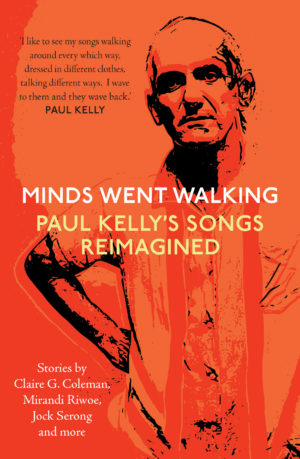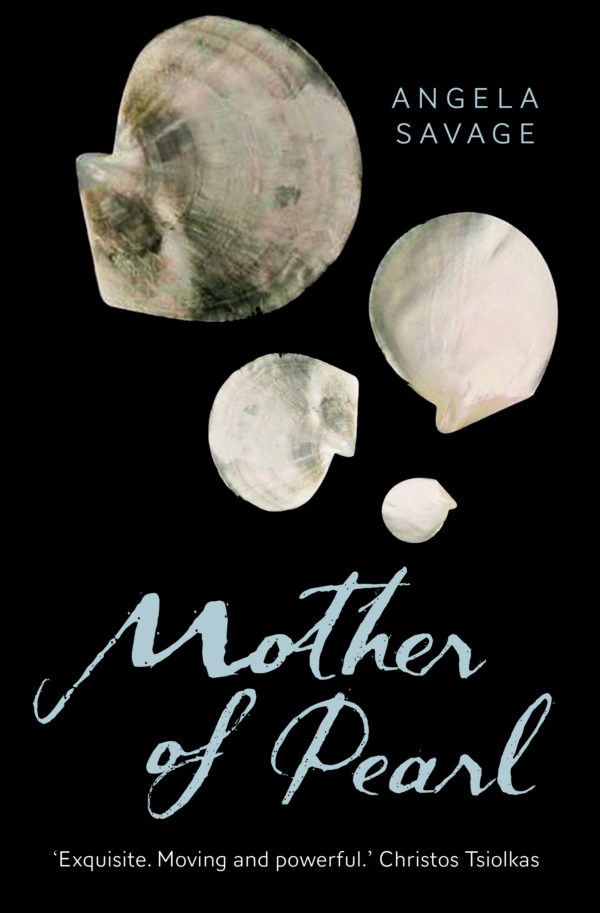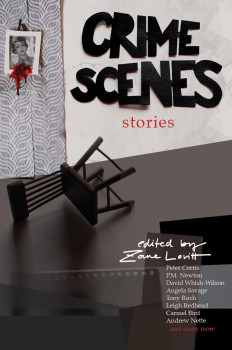 The decision about what to read next during my month off crime fiction was made for me by the announcement on 20 June that All That I Am by Anna Funder had won the prestigious 2012 Miles Franklin Award. The book had been on my reading pile for months. Time to see what all the fuss was about.
The decision about what to read next during my month off crime fiction was made for me by the announcement on 20 June that All That I Am by Anna Funder had won the prestigious 2012 Miles Franklin Award. The book had been on my reading pile for months. Time to see what all the fuss was about.
What I discovered was a book to love as both a reader and a writer.
There are so many ideas, beautifully observed, that resonated for me in this book, which can stand alone and lose none of their power. Take this example:
At least half of what we call hope, I believe, is simply the sense that something can be done.
And this:
This vast life — the real, interior one in which we remain linked to the dead (because the dream inside us ignores trivialities like breath, or absence) — this vast life is not under our control. Everything we have seen and everyone we have known goes into us and constitutes us, whether we like it or not…
Then there is the innovative structure, two first-person narrators telling the story in different eras: German playwright Ernst Toller, writing his memoirs in 1939 in exile in New York; and ageing German émigré Ruth Becker in present-day Sydney. What Toller and Ruth have in common is activist Dora Fabian. They are ‘the two for whom she was the sun. We moved in her orbit and the force of her kept us going,’ as Ruth puts it. Their love for Dora both permeates and motivates their memories of her and the stories they tell.
The historical events, the settings, the characters — most based on real people — are written with such intimacy I felt transported by the narrative. I knew little of European history between the wars prior to reading All That I Am. I wasn’t even all that interested in it. I had no appreciation of the struggle of German exiles who tried to warn the world of Hitler’s agenda, nor of the violence and tragedy that befell so many of them.
What shines through in this book for me is the time and care Funder has taken with all aspects of the story. There’s a breathtaking intimacy to the characters and their relationships to one another: these are people with whom the author has lived for a long time.
It comes as no surprise to learn Funder took over five years to write the book — although a mutual friend from university recalls Funder talking about her friend Ruth Blatt, on whom Ruth Becker’s character is based, as far back as the late 1980s. In a recent article Funder described grappling with a single scene in a Berlin nightclub for six weeks.
The pivotal scene in question equates to about 4,000 words for six week’s work — a far cry from the popular wisdom that serious writers should churn out 1,000 words per day.
As someone who writes slowly — I still write first drafts in longhand — and likes to hang out with characters and scenes in my head long before they make it to the page, while I can only aspire to write with Anna Funder’s skill, I am encouraged by what All That I Am demonstrates in terms of the value of the slow burn.
It is a theme writer Tim Kreider touched on in a recent New York Times article The ‘Busy’ Trap:
Idleness is not just a vacation, an indulgence or a vice; it is as indispensable to the brain as vitamin D is to the body, and deprived of it we suffer a mental affliction as disfiguring as rickets. The space and quiet that idleness provides is a necessary condition for standing back from life and seeing it whole, for making unexpected connections and waiting for the wild summer lightning strikes of inspiration — it is, paradoxically, necessary to getting any [creative] work done.
Reading this I was reminded of how twenty minutes’ thinking time can sometimes be more productive for me than a day in front of the computer and that I should make more time for idle thoughts. Later that very night, I got out of bed to take notes on the ideas that were coming to me in the quiet, alert time that occurs before sleep when one is sober and not completely exhausted.
I panic that I’m not productive enough as a writer, especially when I read in another recent article, also in the NYT (though notably in the business section) that with “the metabolism of book publishing” accelerated by e-books, genre writers are now expected to churn out not one but two books per year.
Two books per year? I’d be rapt if I could write one book in two years.
It doesn’t help that I know writers who do produce two books a year (take a bow “amazingly prolific” Sulari Gentill). Their books are good, too.
I cannot maintain such a pace, not while I’m holding down a job and raising a child — and not when what I crave is more idle time to allow me to develop the kind of intimacy with my characters that Anna Funder has with hers.
Perhaps I have no future as a genre writer in the e-book age. Apparently the “new expectations do not apply to literary novelists… [Successful writers] can publish a new novel approximately every decade and still count on plenty of high-profile book reviews to promote it.”
A new novel every decade? Maybe it’s time to make a change.
I’ll ruminate on the idea next time I’m idle.
All That I Am is published by Penguin / Hamish Hamilton.







Nice post, Angela. Maybe it’s time for you to make that move into capital ‘L’ literature? I have no doubt you’ve got it in you.
LikeLike
Thanks for the vote of confidence!
LikeLike
Hello Angela. Thank you for the the nod, my friend, but really, taking a bow for being “amazingly prolific” is like preening over a “neatly set out manuscript” or an “excellent choice of font”. In the end it is the words, their order, their rhythm and what they inspire in the minds of readers that make us writers. For me, the speed at which I write, is an accident of style rather than something meritorious or even intentional. I write quickly because it is the way I write naturally and best… at least for the books I have written thus far. For some of us (or all of us occassionally) time to consider and ponder and languish in the worlds we have created produces our most insightful and excellent work, and for others, the words we put down first, impulsively, with more feeling than thought and without self-consciousness is our best work. I’m not sure if I am ever idle, but my mind is always “idling”. Whether I am half asleep or in the midst of some intense activity – part of me always seems to be immersed in a story, mulling it over, playing scenes in my mind, warming the engine to write. I do understand the intimacy you crave with your characters…. it’s possibly why I write series – because the one book seems too soon to let them go. Personally, if you were to move to literary fiction, I would miss Jane Keeney. But like Andrew, I do think you have it in you.
LikeLike
Thank you for you comment Sulari. “Amazingly prolific” might be construed as a backhanded compliment except that in your case, it tends to be an observation that precedes a glowing review.
I would envy your capacity to write quickly — and write well — except that I’m modelling myself on Theodore Roosevelt when he said, ‘Comparison is the thief of joy.’
As you say, we all have our styles and methods. How privileged we are to be able to find expression — not to mention an audience — for our stories.
LikeLike
Too true Angela… I am convinced that if I did not have the channel to let these stories out of my head, I would long ago have exploded! 🙂 Thank you for a really thought-provoking post… it has stimulated much discussion at my house.
LikeLike
What a wonderful post, thanks. I like the idea of the slow burn. You can’t rush the process, can you? I call it percolating, when ideas are just slowly simmering in my mind, but when it comes to the actual writing I am super fast. It just pours out. One of the reasons I started the ‘Writing Mothers’ series was because I noticed, after having kids, that if I set aside the time, it just comes racing out (because there is no other option for me). As you know, I loved Anna Funder’s book. I think if that’s her debut novel, she is likely to become one of the best writers internationally, no question, up there with the Ian McEwans, etc. I hope so. She has moved to NY so she has her sights set, I think.
LikeLike
Kirsten, I think we must have been destined to meet and become friends. ‘Percolating’ is exactly the word I use to describe the same process when I’m brewing ideas. Unfortunately I’m not so fast once I do sit down to write. I’m going to allow more time for the ideas to percolate and see if that makes a difference.
I will be very interested to see what Anna Funder writes next. Stasiland and All That I Am are hard acts to follow but I have no doubt she’s up to the task.
LikeLike
“This morning, I took out a comma; this afternoon, I put it back in again, ” said Oscar Wilde (well according to Google – I actually thought it was Philip Roth.) Still like so much of Wilde, it would be a mistake to think this was no more than a joke. And Wilde was quite prolific over the course of his life.
LikeLike
Lovely quote, Samantha. And if it was Oscar Wilde, a lovely reminder that even the most prolific of writers have their slow days.
LikeLike
That scene in the Berlin nightclub was my absolute favourite part of the book. Interesting that it’s the one that took so long. Thanks for the post (from a super-slow writer).
LikeLike
Hey Beth, I think the more of us that come out as ‘super-slow’ writers, the better!
LikeLike
Pingback: Favourite reads of 2012 | Angela Savage
Pingback: Fan mail | Angela Savage